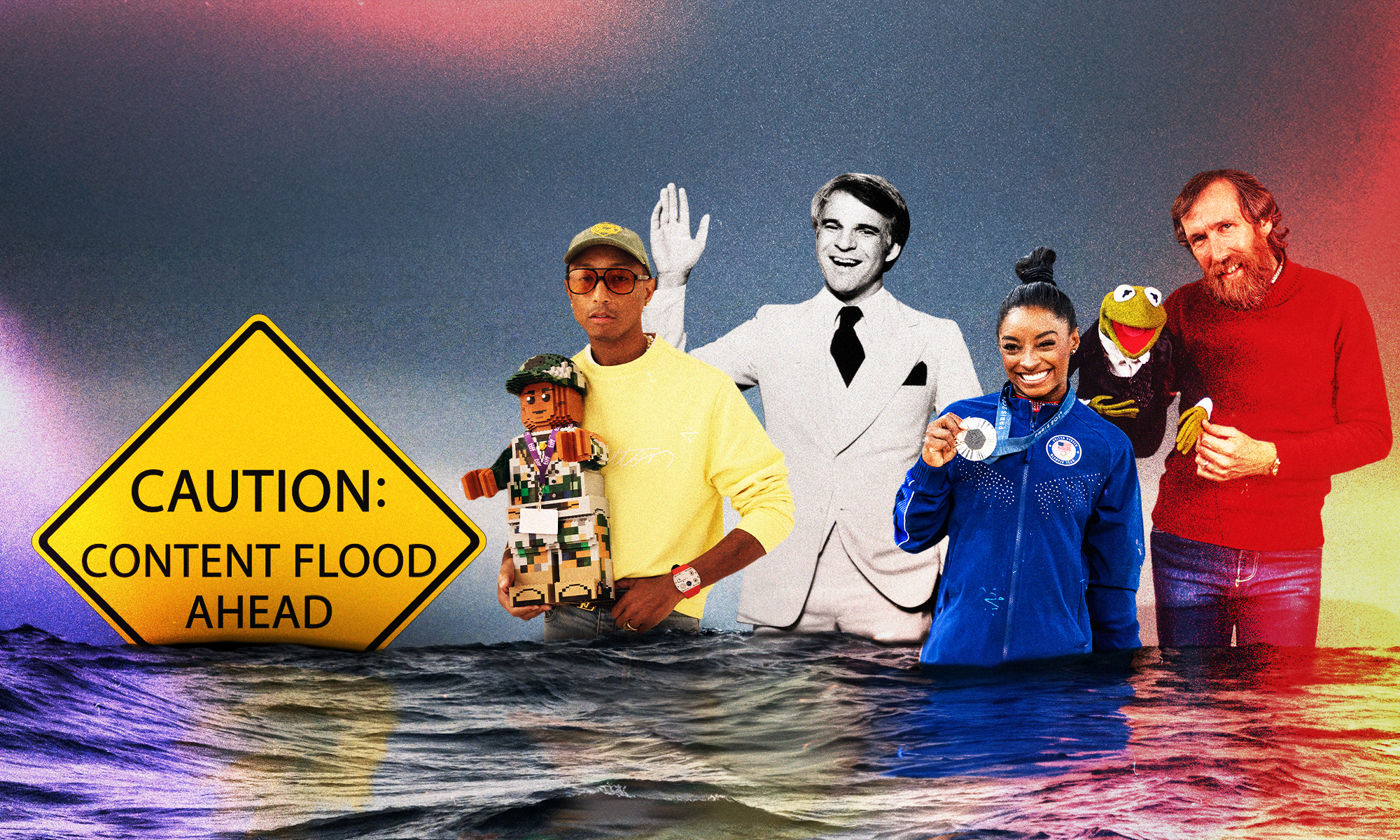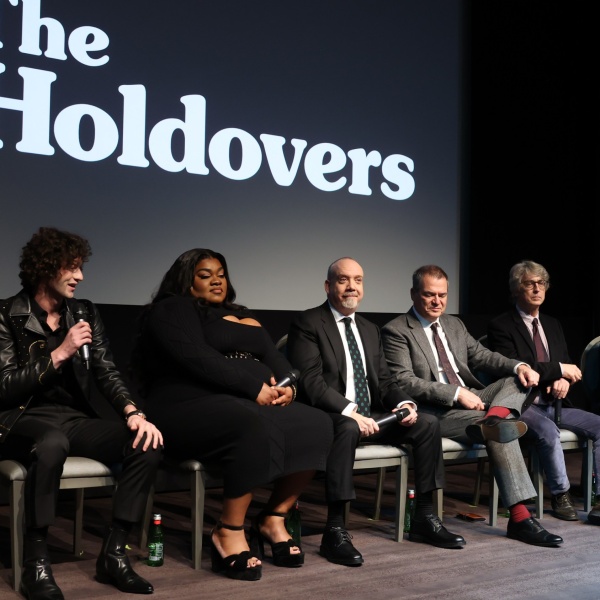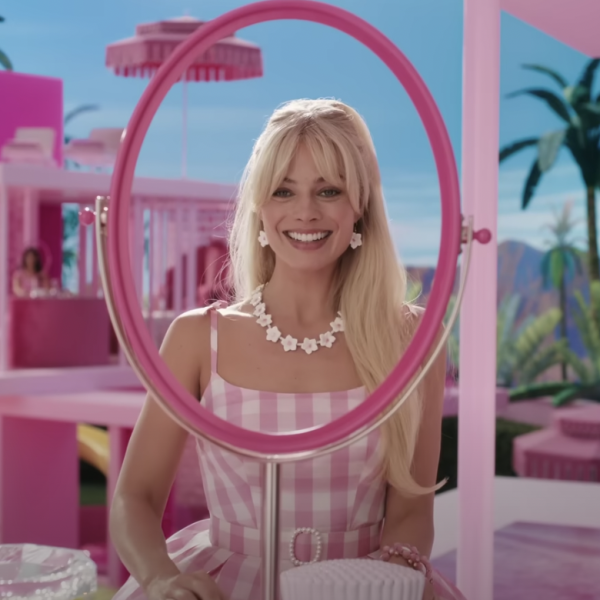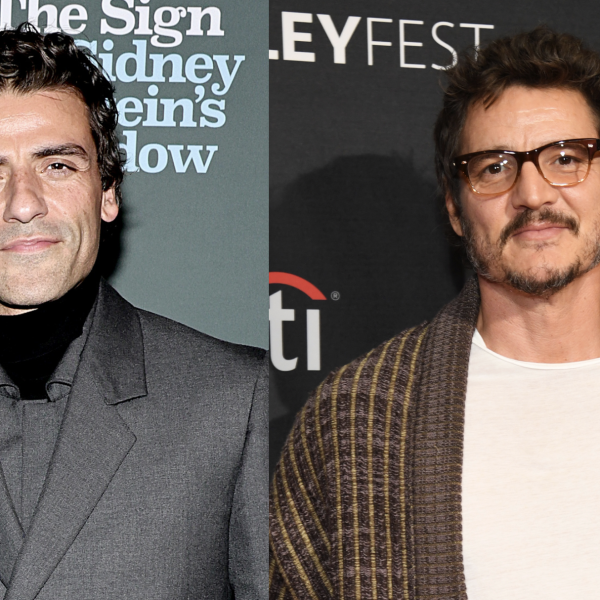When Imagine Documentaries president Sara Bernstein pitched New York Post gossip columnist Cindy Adams on making a film about her career, even the veteran journalist didn’t understand why Bernstein was interested. “What do you want to make a doc about me for?” Adams asked the “Jim Henson: Idea Man” producer. “Everybody has a documentary. My dentist has a documentary!”
Good line — and she must have a great dentist.
An incomplete list of this year’s celebrity docs includes Simone Biles, Celine Dion, Steve Martin, Roger Federer, Stevie van Zandt, Brian Eno, Frida Kahlo, Devo, Christopher Reeve, Sue Bird, Andrea Bocelli, Elton John, Martha Stewart, John Lennon and Yoko Ono, Paul Anka, Pharrell Williams, and Bruce Springsteen.
The appetite seems nearly endless, but producers say it’s increasingly difficult to find famous people whose lives haven’t flashed before our eyes. Said Bernstein, “The challenge today is, who hasn’t had a documentary?”
Maybe an exaggeration, but she’s not wrong. According to Parrot Analytics, the number of biographical documentary series on streaming exploded by 373 percent between January 2020-July 2024.
“At some point, you’re going to run out of GOATs to tell stories about,” said FredAnthony Smith, VP and head of non-scripted development at SMAC Productions, which most recently profiled Deion Sanders in the 10-episode Amazon series “Coach Prime.”
Even as the GOAT supply runs low, demand remains high. Warner Bros. spent $15 million to acquire “Super/Man.” Netflix made a deal with David and Victoria Beckham for a reported $20 million for docuseries “Beckham,” which spent six weeks on the streamer’s global Top 10 list and two weeks at #1. Celebrity-driven bio docs have established fan bases and tap into nostalgia; sports docs even provide good ancillary programming for live events.
“All these platforms, they’re fighting for audience,” said Bernstein, who is currently working on a Martin Short documentary. “Well-known personalities come with a built-in audience, and that makes it incredibly attractive to a programming team.”
High-quality documentaries don’t always demand boldface names. Recent premieres at TIFF included Mati Diop’s Mubi title “Dahomey” (repatriating royal treasures to the Republic of Benin); Raoul Peck’s “Ernest Cole: Lost and Found” (the first Black freelance photographer in apartheid South Africa), which will be distributed by Magnolia Films; and Olivier Sarbil’s “Viktor,” which presents the Ukranian war from the perspective of a deaf man and includes Darren Aronofsky as a producer.
There’s many ways to make a documentary and many people with impressive achievements, but for streamers the sweet spot can be a relatively small one. You need a famous person, preferably one with a dark-ish secret. Or you could profile a heretofore unknown, but they need the kind of crime or scandal that might inspire subreddits.

Any streamer would love another true-crime series like Netflix’s “Making a Murderer” and “Wild Wild Country,” but those owe a debt of gratitude to an approach that’s all but extinct. Joe Berlinger and Bruce Sinofsky devoted two decades to their work about the West Memphis Three and produced three documentaries between 1996 and 2011. With “Paradise Lost 3: Purgatory,” they earned an Oscar nomination.
Top directors like Morgan Neville, RJ Cutler, Chris Smith, Fisher Stevens, and others direct new films every year and operate production companies that produce many more. Known for creating the kind of polished work that streamers embrace, they’ve become the major studios of the documentary world.
“Fresh Off the Boat” creator Eddie Huang made his documentary debut at TIFF with “Vice Is Broke,” a documentary about the demise of the controversial media brand. Seeking distribution, it’s clearly not a sanctioned profile — our David Ehrlich said it’s a “furious” portrait and a “cautionary tale” — and Huang wanted to distance himself from bio-docs that “feel like advertisements.” He might even consider making one some day, but said they’re the ones you make to “feed your family.”
No documentarian wants their work to be confused with ads, but all documentarians need access. And if that means profiling a living celebrity — especially one who will promote the film — storytelling cooperation can become something closer to partnership.

Pharrell Williams is both subject and producer in Neville’s “Piece By Piece,” which just debuted at the Telluride Film Festival to good reviews. David Beckham was an executive producer on the Emmy-winning “Beckham.” Simone Biles promotes the Netflix series “Simone Biles Rising.” Lana Wilson had the full support of her subjects with “Pretty Baby” (Brooke Shields) and “Miss Americana” (Taylor Swift).
Wilson told IndieWire that the 2020 “Miss Americana” was never going to be Swift’s life story. It was “the chance to make a story about this remarkable artist at this pivot point in her life and career and to get at these bigger-picture things.”
“The Last Dance,” the 2020 Emmy-winning 10-part docuseries about Michael Jordan’s career and the 1998 Chicago Bulls, would have been impossible without Jordan’s cooperation. It checked all of the boxes: a legendary figure who had never told his story in great detail, a full history of the team seen at a very specific and poignant moment in time, and a trove of unseen footage.
However, “The Last Dance” also faced some critics and former teammates (“ninety percent bullshit”) who saw it as a whitewashed and hagiographic portrait. Also true: The series became the most-watched ESPN documentary ever.
That informs buyers’ unending hunger for these documentary projects. “You have so many streamers and so many networks looking for the ‘sure thing.’” Smith said. “We all know that there’s no such thing as a sure thing.”
At the same time, Smith pointed out, obvious winners aren’t always that obvious. “The things that really break out are the things you don’t see coming.”
For example, producer Glen Zipper won an Oscar for his 2011 documentary “Undefeated,” which follows an underdog high-school football team from inner-city Memphis. Today, Zipper said, it “would be a lot harder” to even get it made.
Since then, Zipper has produced more than three dozen documentaries including “What She Said: The Art of Pauline Kael” and “Henri Dauman: Looking Up,” but he said it’s personality-driven docs like “Elizabeth Taylor: The Lost Tapes,” “The Beach Boys,” and “Charlie Hustle & the Matter of Pete Rose” that are quick to sell.

Wavelength executive producer Jenifer Westphal made a similar change. Wavelength made its mark with original and experimental stories like Sam Green’s acclaimed documentary “32 Sounds.” Today, more of her focus is on to pop-culture figures.
“The shift is real, for sure,” Westphal said of the market demands for bio-docs. Since she executive produced “32 Sounds” in 2022, she’s produced “Werner Herzog: Radical Dreamer,” “Rather,” and “Thank You Very Much,” the story of late comedian Andy Kaufman. And if you thought getting access to a famous person while they were alive is tough, try getting it after they’ve passed.
“The estates are smart,” she said. “‘What’s in it for me? How much control do I have?’ They’re not going to give final cut to a young filmmaker.”
Survivors have become increasingly protective of their subjects’ legacies. Currently in limbo is Ezra Edelman’s nine-hour, six-part Netflix documentary about Prince. The Oscar-winning “O.J.: Made in America” director spent four years on its production, but the late musician’s estate isn’t happy with the final product.
Zipper said he’s lost projects because he wasn’t willing to offer final cut. He won’t agree to a project in which the estate can insist upon late changes; neither will SMAC co-founder and CEO Constance Schwartz-Morini.
“We’re not here to do ‘gotcha’ pieces,” said Schwartz-Morini, who is an executive producer on the upcoming Amazon docuseries “The Evolution of the Black Quarterback.” “It really is about having the trust of whomever the subject is, but they have to also know, this isn’t a PSA, they’re called documentaries. We’re never going to create drama, but we also have to be very objective as we showcase the story from beginning to end.”
Sometimes, a documentarian haggling with a source can be a happy ending: It means they’ve already won a negotiation against other producers. Competition is so fierce that few producers we spoke to were willing to identify their current or next pursuit beyond generic labels: a recently deceased icon, a sports legend, a comic genius.
“Some producers love to stay very plugged into the documentary marketplace and get a sense of what is it that everybody else is chasing,” said Zipper, who is now working on a John Candy documentary. “‘What is everyone talking about? What is the white whale that they’re chasing? Maybe that’s what I should chase.’ Me personally, that would make me crazy.”




